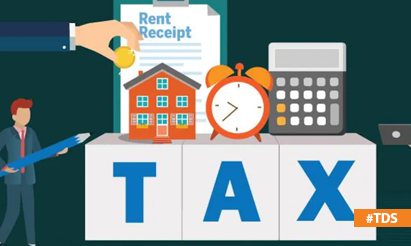Maximizing Returns: Second Home Tax Guide
In the dynamic landscape of real estate investment, owning a second home is not just a lifestyle choice but also a strategic financial decision. Beyond the potential for rental income and capital appreciation, second homebuyers in India can leverage various tax benefits to enhance the overall returns on their investment. This comprehensive guide explores the intricacies of tax benefits on second home loans in India, drawing insights from the latest Indian news and sources to provide a detailed understanding of the tax landscape for dual homeownership.
Understanding the Basics:
Before delving into the specific tax benefits, it’s essential to grasp the fundamental aspects of owning a second home and the associated taxation framework.
- Definition of Second Home: In India, a second home refers to a property that is not considered the taxpayer’s primary residence. This could include vacation homes, properties for rental income, or additional residences owned for investment purposes.
- Taxation of Rental Income: If the second home is rented out, the rental income is taxable under the head “Income from House Property.” Deductions are allowed for municipal taxes paid and a standard deduction of 30% of the net annual value. If the property is self-occupied, no rental income is generated for tax purposes.
Tax Benefits on Second Home Loans:
- Interest Deduction under Section 24(b): One of the key tax benefits for second homebuyers is the deduction on the interest paid on the home loan. Under Section 24(b) of the Income Tax Act, individuals can claim a deduction on the interest paid, up to a maximum limit of ₹2 lakh per annum. This deduction is available for both self-occupied and rented second homes.Recent Update: The Finance Act may introduce changes to the maximum limit, and staying informed about the latest amendments is crucial for maximizing tax benefits.
- Principal Repayment Deduction under Section 80C: Section 80C of the Income Tax Act allows individuals to claim a deduction on the principal repayment of the home loan, including the second home. The maximum deduction allowed under this section is ₹1.5 lakh annually. It’s important to note that this deduction is part of the overall limit of ₹1.5 lakh, which includes other eligible investments and expenditures.Recent Update: Any changes to the limits or scope of Section 80C will impact the overall tax planning strategy for second homebuyers.
- Tax Benefits on Joint Home Loans: If the second home loan is taken jointly, each co-borrower is entitled to claim deductions separately for the interest and principal components. This can significantly enhance the overall tax benefits for individuals investing in a second home with a co-borrower.
- Tax on Rental Income: For second homes that are rented out, owners must declare the rental income in their income tax returns. While the entire rental income is taxable, deductions are allowed for municipal taxes paid and a standard deduction of 30% of the net annual value. This deduction helps in reducing the taxable rental income.
Recent Trends and Developments:
- Digital Transformation in Tax Filing: The digitalization of tax filing processes in India has streamlined the submission of documents and claims. Online platforms and apps provided by tax authorities have made it easier for individuals to file accurate and timely returns, ensuring that they avail themselves of the applicable tax benefits on their second homes.
- Government Initiatives: Recent government initiatives aimed at promoting affordable housing and real estate development may have an impact on tax benefits for second homebuyers. Staying abreast of policy changes and incentives is essential for optimizing tax planning strategies.
- Impact of the COVID-19 Pandemic: The COVID-19 pandemic has brought about changes in work patterns and lifestyle choices. As more individuals consider investing in second homes for remote work or as vacation properties, the taxation landscape may witness adjustments to accommodate evolving trends.
- Green Homes and Tax Incentives: With a growing focus on sustainable living and environmental conservation, the government may introduce tax incentives for individuals investing in “green homes” or properties with eco-friendly features. Keeping an eye on such developments can aid second homebuyers in making environmentally conscious choices while maximizing tax benefits.
Conclusion:
Owning a second home in India not only provides individuals with an additional source of income but also presents opportunities for optimizing tax planning. Leveraging tax benefits on second home loans, including deductions on interest and principal repayments, can significantly enhance the financial returns on this investment. Staying informed about recent developments, government initiatives, and amendments to tax laws is crucial for individuals looking to make the most of their second home investment. As the real estate landscape continues to evolve, the strategic utilization of tax benefits becomes an integral aspect of the broader financial planning journey for second homebuyers in India.
Disclaimer: The views expressed above are for informational purposes only based on industry reports and related news stories. PropertyPistol does not guarantee the accuracy, completeness, or reliability of the information and shall not be held responsible for any action taken based on the published information.




